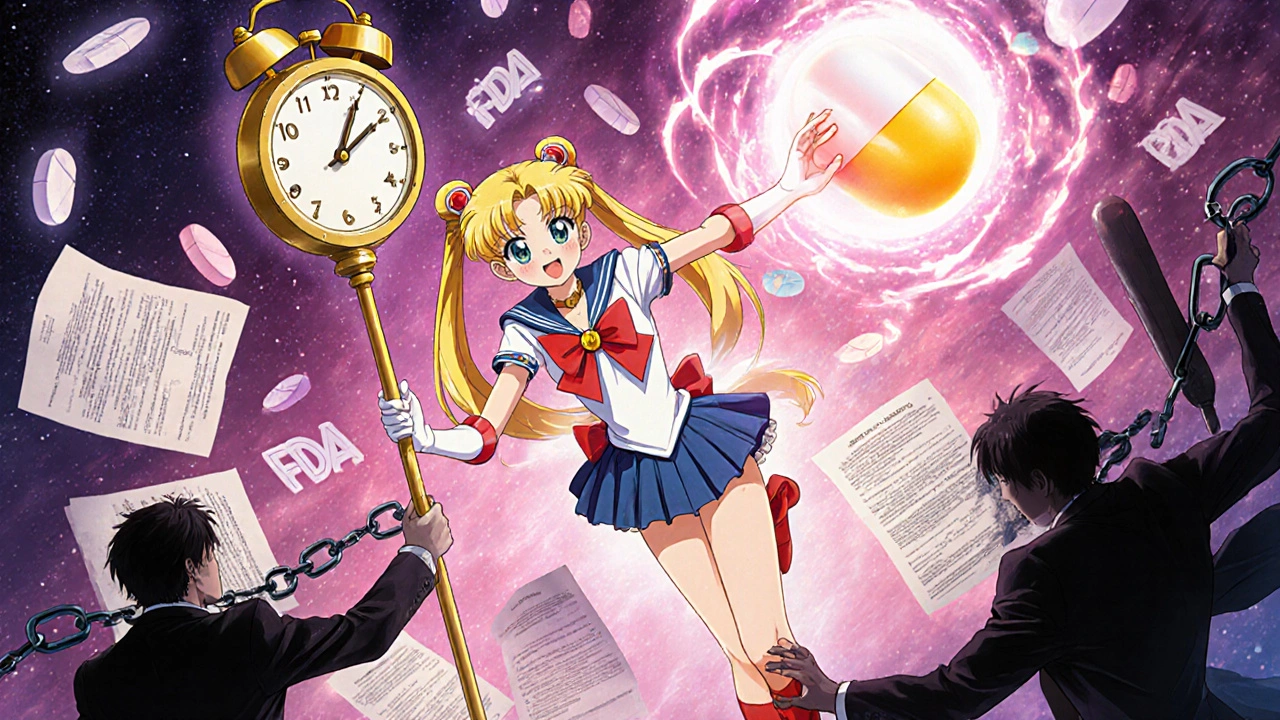Pay-for-Delay: How Big Pharma Blocks Cheap Generic Drugs
When a brand-name drug’s patent is about to expire, a pay-for-delay, a secret deal where a brand-name drug maker pays a generic company to delay launching a cheaper version. Also known as reverse payment settlement, it’s a legal loophole that keeps drug prices high instead of letting competition lower them. This isn’t just a business tactic—it’s a system that costs U.S. consumers over $3.5 billion a year in extra drug costs, according to the FTC. The idea behind patent law is simple: reward innovation, then let others compete. But pay-for-delay flips that. Instead of waiting for the patent to expire, the brand-name company writes a check to the generic maker to sit out the market.
This trick works because of the Hatch-Waxman Act, a 1984 law meant to balance drug innovation with affordable generics. Also known as Drug Price Competition and Patent Term Restoration Act, it gave the first generic company to challenge a patent 180 days of exclusive sales rights. But here’s the catch: instead of launching, some generic makers take the payment and delay. The brand-name company wins by keeping prices high. The public loses. Even worse, these deals often hide behind vague legal language, making them hard to track or stop.
It’s not just about one drug. Pay-for-delay shows up in heart meds, antidepressants, and even insulin. In one case, a generic maker got $200 million to delay a cheaper version of a top-selling asthma drug for years. Meanwhile, patients paid hundreds more per month. The FTC has sued over 40 of these deals since 2000, and courts have ruled some illegal—but loopholes still exist. The real problem? These deals are rarely public. You won’t see them listed on pharmacy shelves. You’ll just see the price tag.
What’s worse, these agreements don’t just hurt consumers—they slow down innovation. Why would a small company invest in developing a new generic if the big players can just buy them off? And when generics finally do launch, they often come too late to make a real difference in affordability. The system was built to help people get cheaper meds. Now, it’s being used to keep them expensive.
Below, you’ll find real stories about how this plays out in the drug market—from patent battles that delay life-saving treatments, to the companies that profit by keeping prices high. You’ll also see how some generic makers are fighting back, and what changes are actually making a difference. This isn’t theory. It’s happening right now, in your local pharmacy, in your insurance bill, and in your wallet.
